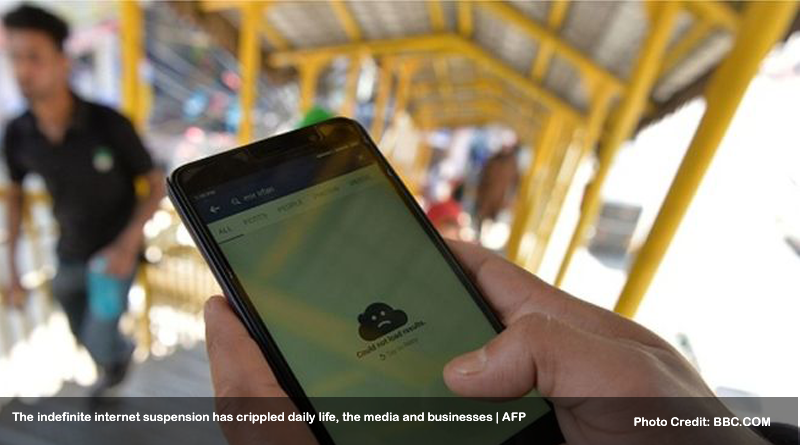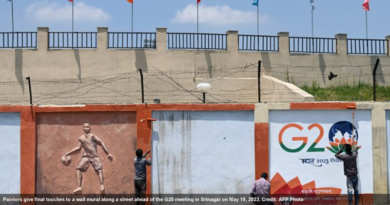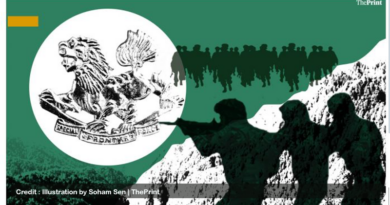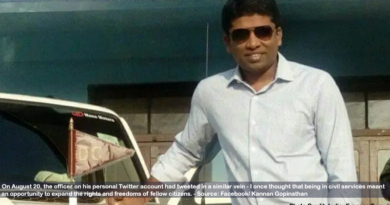Kashmir blackout eases but restrictions remain
Mobile internet and social media remain largely blocked in Indian-administered Kashmir, despite the government saying it partially lifted its internet blockade in the region.
Limited broadband service and 2G were restored to some districts in the Hindu-dominated Jammu region, but not in the Muslim-majority Kashmir valley.
Internet services have been suspended in the region since 4 August.
India said the move was necessary to maintain law and order.
The Kashmir valley is the site of a long-running insurgency against Indian rule.
The internet blockade came as India revoked the region’s semi-autonomous status and split it into two federally-administered territories.
The government said that the internet could be used to spread disinformation and allow militant groups to plan attacks.
But critics called the shutdown – the longest ever in any democracy – undemocratic and draconian.
The chief US diplomat for South Asia affairs, Alice Wells, is among those who have expressed concern.
“We remain concerned by detention of political leaders and residents, and internet restrictions. We look forward to a return to normalcy,” she tweeted on Saturday, days after India arranged a tour of the region for some diplomats.
The communications blackout, which also initially included phone services, has severely hurt the region’s economy. Many businesses are struggling to operate.
- Why India leads the world in internet shutdowns
- Love letters and landlines return in cut-off Kashmir
- How a colonial-era law is being used in India
The government’s move restores a handful of broadband connections to “institutions dealing with essential services” such as banks, hospitals and government offices in four districts and these will be heavily monitored.
A government notice explicitly stated that access to social media sites or “peer-to-peer” messaging services like WhatsApp would not be restored.
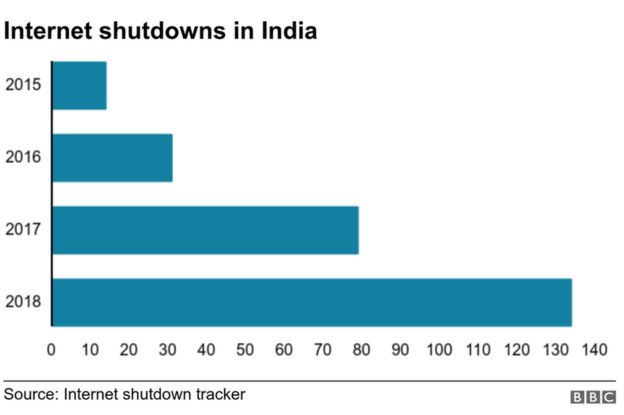
Furthermore, internet service providers will be expected to install firewalls to prevent access to sites other than specific “white-listed” ones such as government websites.
India’s Supreme Court last week ordered a review of all the restrictive orders that are still in place in Kashmir.
This, the court said, should be done within a week. “Suspension of free movement, internet and basic freedoms cannot be an arbitrary exercise of power,” it said in its order.
Some mobile phone and landline services were restored in October, but the indefinite internet suspension has crippled daily life, the media and businesses.
The move in August by India’s Hindu nationalist Bharatiya Janata Party (BJP) government to revoke the region’s autonomy was controversial as the “special status” Kashmir enjoyed underpinned its fraught relationship with Delhi.
Courtesy:
https://www.bbc.com/news/world-asia-india-51117025

